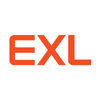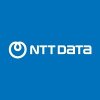
i
eClerx
Filter interviews by
eClerx KYC Analyst Interview Questions and Answers
8 Interview questions
Documents required for corporate KYC include incorporation documents, business licenses, financial statements, and ownership information.
Incorporation documents such as Certificate of Incorporation, Memorandum and Articles of Association
Business licenses and permits
Financial statements like balance sheets, income statements, and cash flow statements
Ownership information including details of shareholders, directors...
Capital market refers to the financial market where long-term debt or equity-backed securities are bought and sold.
Capital market is where companies and governments raise long-term funds through the issuance of stocks and bonds.
It includes both primary market (new securities are issued) and secondary market (existing securities are traded).
Investors in the capital market include institutional investors, retail inv...
Anti money laundering refers to laws and regulations designed to prevent criminals from disguising illegally obtained funds as legitimate income.
Anti money laundering (AML) measures are put in place to detect and prevent money laundering activities.
Financial institutions are required to implement AML programs to monitor and report suspicious transactions.
AML regulations typically involve customer due diligence, tr...
Forwards are financial contracts where two parties agree to buy or sell an asset at a specified price on a future date.
Forwards are customized contracts traded over-the-counter (OTC)
They are used to hedge against price fluctuations in commodities, currencies, and financial instruments
Settlement occurs at the end of the contract period, with no upfront payment required
Forwards are not standardized like futures cont...
What people are saying about eClerx






KYC stands for Know Your Customer. It is a process used by financial institutions to verify the identity of their clients.
KYC is a regulatory requirement to prevent money laundering, terrorist financing, and other financial crimes.
It involves collecting personal information and documentation from clients, such as ID cards, passports, and utility bills.
KYC also includes screening clients against sanctions lists and...
Finance deals with managing money and investments, while accounting deals with recording and reporting financial transactions.
Finance involves making financial decisions and managing investments, such as deciding how to allocate funds and analyzing financial data to make predictions.
Accounting involves recording financial transactions, preparing financial statements, and ensuring compliance with financial regulati...
The importance of Know Your Customer (KYC) regulations in preventing financial crimes.
KYC regulations help financial institutions verify the identity of their customers.
They also help in assessing the risk of illegal activities such as money laundering and terrorism financing.
Compliance with KYC regulations is mandatory to prevent financial crimes and protect the integrity of the financial system.
Derivatives are financial contracts that derive their value from an underlying asset or security.
Types of derivatives include futures, options, swaps, and forwards.
Futures are contracts to buy or sell an asset at a predetermined price and date.
Options give the holder the right, but not the obligation, to buy or sell an asset at a predetermined price and date.
Swaps involve exchanging cash flows based on different f...
eClerx KYC Analyst Interview Experiences
7 interviews found
I applied via Referral and was interviewed in Jul 2024. There were 3 interview rounds.
(2 Questions)
- Q1. What do you mean by capital market
- Ans.
Capital market refers to the financial market where long-term debt or equity-backed securities are bought and sold.
Capital market is where companies and governments raise long-term funds through the issuance of stocks and bonds.
It includes both primary market (new securities are issued) and secondary market (existing securities are traded).
Investors in the capital market include institutional investors, retail investor...
- Q2. What do you mean by anti money laundering
- Ans.
Anti money laundering refers to laws and regulations designed to prevent criminals from disguising illegally obtained funds as legitimate income.
Anti money laundering (AML) measures are put in place to detect and prevent money laundering activities.
Financial institutions are required to implement AML programs to monitor and report suspicious transactions.
AML regulations typically involve customer due diligence, transac...
Pretty simple reasoning quant and english
(2 Questions)
- Q1. What all document you will look for corporate kyc
- Ans.
Documents required for corporate KYC include incorporation documents, business licenses, financial statements, and ownership information.
Incorporation documents such as Certificate of Incorporation, Memorandum and Articles of Association
Business licenses and permits
Financial statements like balance sheets, income statements, and cash flow statements
Ownership information including details of shareholders, directors, and...
- Q2. What are your strength and weakness
- Ans.
Strength: attention to detail, weakness: tendency to overanalyze
Strength: I have a strong attention to detail which allows me to thoroughly review documents and identify any discrepancies.
Weakness: Sometimes I have a tendency to overanalyze situations, which can lead to delays in decision-making.
Strength: I am highly organized and able to prioritize tasks effectively.
Weakness: I can be overly critical of my own work, w...
I appeared for an interview in Mar 2024.
(4 Questions)
- Q1. Tell me about future and options
- Ans.
Futures and options are financial derivatives used for hedging and speculation in various markets.
Futures contracts obligate parties to buy/sell an asset at a predetermined price on a specific date.
Example: A farmer may sell a futures contract for wheat to lock in a price before harvest.
Options give the buyer the right, but not the obligation, to buy/sell an asset at a set price before expiration.
Example: An investor b...
- Q2. Talk for 5 minutes on topic
- Ans.
The importance of Know Your Customer (KYC) regulations in preventing financial crimes.
KYC regulations help financial institutions verify the identity of their customers.
They also help in assessing the risk of illegal activities such as money laundering and terrorism financing.
Compliance with KYC regulations is mandatory to prevent financial crimes and protect the integrity of the financial system.
- Q3. Tell me about swaps
- Ans.
Swaps are financial agreements between two parties to exchange cash flows or other financial instruments.
Swaps are commonly used in hedging against interest rate or currency fluctuations
Types of swaps include interest rate swaps, currency swaps, and commodity swaps
Example: In an interest rate swap, one party may exchange a fixed interest rate for a floating interest rate
- Q4. Tell me about forwards
- Ans.
Forwards are financial contracts where two parties agree to buy or sell an asset at a specified price on a future date.
Forwards are customized contracts traded over-the-counter (OTC)
They are used to hedge against price fluctuations in commodities, currencies, and financial instruments
Settlement occurs at the end of the contract period, with no upfront payment required
Forwards are not standardized like futures contracts...
Interview Preparation Tips
- Derivatives
Skills evaluated in this interview
I applied via Naukri.com and was interviewed in Nov 2023. There were 3 interview rounds.

I have completed my Assignment in English, reasoning, Quantitude Aptitude. Easy u can write they will given any one topic.
(2 Questions)
- Q1. They have check the Communication that's like Skills.
- Q2. Tell me about your self introduction, what is Derivative, what is Capital Market and types of Capital Market, what is KYC.
- Ans.
KYC Analyst introduction covering derivatives, capital markets, and KYC essentials.
A derivative is a financial contract whose value is derived from an underlying asset, such as stocks or commodities.
Examples of derivatives include options, futures, and swaps.
Capital markets are venues where savings and investments are channeled between suppliers and those in need, facilitating capital raising.
Types of capital markets i...
(5 Questions)
- Q1. About your self
- Q2. Why are you joining the company
- Ans.
I am joining the company to leverage my skills in KYC compliance and contribute to a robust risk management framework.
I admire the company's commitment to regulatory compliance and ethical standards, which aligns with my professional values.
The opportunity to work with a diverse team of experts in the field excites me, as collaboration fosters innovation.
I am eager to apply my analytical skills to enhance the KYC proce...
- Q3. Salary expectations
- Ans. As per company policy
- Q4. What is KYC ?
- Ans.
KYC stands for Know Your Customer. It is a process used by financial institutions to verify the identity of their clients.
KYC is a regulatory requirement to prevent money laundering, terrorist financing, and other financial crimes.
It involves collecting personal information and documentation from clients, such as ID cards, passports, and utility bills.
KYC also includes screening clients against sanctions lists and poli...
- Q5. Know your costumer
I applied via Walk-in and was interviewed in Oct 2022. There were 4 interview rounds.

I cleared but they were not giving the results have to visit the office to get the results didn't responding properly
(2 Questions)
- Q1. Asking to sign the bond
- Q2. Derivatives and it's types
- Ans.
Derivatives are financial contracts that derive their value from an underlying asset or security.
Types of derivatives include futures, options, swaps, and forwards.
Futures are contracts to buy or sell an asset at a predetermined price and date.
Options give the holder the right, but not the obligation, to buy or sell an asset at a predetermined price and date.
Swaps involve exchanging cash flows based on different financ...
(1 Question)
- Q1. Asking abt the project of the college Elaborate it
Interview Preparation Tips
I appeared for an interview before Apr 2024, where I was asked the following questions.
- Q1. How was your last company experience
- Ans.
My last company experience was enriching, providing me with valuable skills in KYC compliance and customer due diligence.
Developed expertise in KYC regulations and compliance processes, ensuring adherence to legal standards.
Conducted thorough customer due diligence, identifying potential risks and implementing mitigation strategies.
Collaborated with cross-functional teams to streamline KYC processes, improving efficien...
- Q2. Explain yourself
I applied via Naukri.com and was interviewed in Apr 2021. There were 4 interview rounds.
Interview Questionnaire
3 Questions
- Q1. Tell me something about yourself ?
- Ans.
I am a detail-oriented KYC Analyst with a strong background in compliance and risk management, passionate about ensuring regulatory adherence.
Background in finance with a degree in Business Administration.
Experience in conducting customer due diligence and risk assessments.
Skilled in using KYC software and databases to verify client identities.
Strong analytical skills demonstrated through identifying suspicious activit...
- Q2. What is the difference between Finance and Accounting
- Q3. What do you understand by KYC
- Ans.
KYC, or Know Your Customer, is a process used by businesses to verify the identity of their clients to prevent fraud and comply with regulations.
KYC involves collecting personal information such as name, address, and date of birth.
It helps in assessing the risk of illegal activities like money laundering.
For example, banks require KYC to open a new account.
KYC procedures can include document verification, such as gover...
Interview Preparation Tips
Interview questions from similar companies

Interview Preparation Tips
Experience: Didn't read any material saw resumes of my friends who pass out last year to see how to organize my points. Prepare my resume and refine it with the help of my friends several times
Round: HR Interview
Experience: Saw common HR questions from the websites and prepare answers for that .worked in groups in which one person acted as an interviewer.
Round: Case Study Interview
Experience: For the case studies, I referred many e-books available to learn the basic procedure to solve case studies. Sample case studies are also available on sites of these companies (Mckinsey.com, BCG.com or Bain.com)
Round: Puzzle Interview
Experience: Some companies asked puzzles. Common puzzles can be found on internet (pagalguy.com, brainvista.com , or orkut)
College Name: IIT BOMBAY

Interview Preparation Tips
Experience: There was a test regarding basic aptitude and English. A few people were selected based on the test.
Round: Other Interview
Experience: An interview will be the next morning based on your resume, co-curricular activities and quite a few interesting puzzles.
Round: Other Interview
Experience: A 2nd interview regarding your guessing skills and a few more puzzles and some HR.
General Tips: Sleep after giving exam hoping you will get an interview. Go attend the interview only if you are interested in math.
Skill Tips: Any books that have puzzles for interview. I didn’t prepare much for apti.
College Name: NIT SURATHKAL

Interview Questionnaire
6 Questions
- Q1. Resume-based questions
- Q2. What is the color of door from which you entered?
- Ans.
The door from which I entered was brown.
The door was made of wood.
The color was a dark shade of brown.
There were no decorations or patterns on the door.
- Q3. Did you attend the ppt? What did you like the most about ppt?
- Ans.
Yes, I attended the ppt and found the case studies presented to be the most interesting.
Attended the ppt
Found the case studies to be the most interesting
Impressed by the data presented
Liked the interactive nature of the presentation
- Q4. Intern-based questions
- Q5. If you start a startup of selling books to IITK students through e-commerce what will be the annual demand you can expect from IITK students?
- Ans.
The annual demand for selling books to IITK students through e-commerce depends on various factors such as the number of students, their course curriculum, and their reading habits.
The demand can be estimated by conducting a survey among the students to understand their reading habits and preferences.
The demand can also be influenced by the availability of books in the campus library and bookstores.
The demand may vary ...
- Q6. In your hostel every girl plays badminton atleast once a month. The probability of one playing badminton in 1st week is a, probability that if one doesn’t play in 1st week than she will play in 2nd week is...
- Ans.
Calculating the probability of two friends playing badminton in the same week given certain probabilities.
Calculate the probability of both playing in the first week (a*a)
Calculate the probability of both playing in the second week ((1-a)*b*(1-c))
Calculate the probability of both playing in the third week ((1-a)*(1-b)*c)
Calculate the probability of both playing in the last week ((1-a-b-c)*(1-a-b-c))
Add up all the proba...
Interview Preparation Tips
Experience: 1. Number of Questions: 30 (10 each from mathematics, English and DI).
2. Type of questions and details Questions of Mathematics and DI were mainly from previous years CAT papers.
3. The time was very limited and so speed was very important while solving the questions.
4. Moreover there was cut off for individual sections so keeping that in mind one had give time to each section.
Duration: 30-40 minutes
Total Questions: 10+10+10
Round: HR Interview
Experience: Most of the questions were resume based. The interviewer also tried to confuse me sometimes. While I was answering he looked at the ceiling and here and there but I ensured that I was still answering everything very confidently not diverting my attention.
Round: Case Study Interview
Experience: It was a HR + puzzle + casestudy interview and lasted for 20-25 minutes and had a panel of only one.
General Tips: 1. Don’t leave everything for the end. As December approaches it becomes more and more hectic with end sems, project deadlines, BTP, ppts to attend, test of companies etc. Start preparing early.
2. Do attend ppt and write down points whatever they mention in the ppt. generally one can prepare the questions like why this sector or why this company from the points they mention in ppt.
3. They generally mention that they are looking for in the candidates in the ppt so this helps in preparing the answers in interview. Moreover do spend some time in preparing for HR.
4. At least think and write down few basic points of the questions that are generally asked in the interviews.
Skill Tips: Do solve all previous year question papers of CAT and try to increase speed of solving.
Do practice some case studies and puzzles.
Skills:
College Name: IIT KANPUR
eClerx Interview FAQs
Tell us how to improve this page.
eClerx Interviews By Designations
- eClerx Financial Analyst Interview Questions
- eClerx Analyst Interview Questions
- eClerx Senior Analyst Interview Questions
- eClerx Associate Process Manager Interview Questions
- eClerx Data Analyst Interview Questions
- eClerx Processing Manager Interview Questions
- eClerx Senior Financial Analyst Interview Questions
- eClerx KYC Analyst Interview Questions
- Show more
Interview Questions for Popular Designations
Overall Interview Experience Rating
based on 8 interview experiences
Difficulty level
Duration
Interview Questions from Similar Companies
eClerx KYC Analyst Reviews and Ratings
based on 21 reviews
Rating in categories
|
Senior Analyst
5.6k
salaries
| ₹3.1 L/yr - ₹7.3 L/yr |
|
Analyst
4.4k
salaries
| ₹2 L/yr - ₹4 L/yr |
|
Financial Analyst
4.4k
salaries
| ₹1.5 L/yr - ₹5 L/yr |
|
Associate Process Manager
3k
salaries
| ₹5.1 L/yr - ₹12 L/yr |
|
Processing Manager
1.8k
salaries
| ₹9.2 L/yr - ₹16 L/yr |

LTIMindtree

DXC Technology

Mphasis

EXL Service
- Home >
- Interviews >
- eClerx Interview Questions














